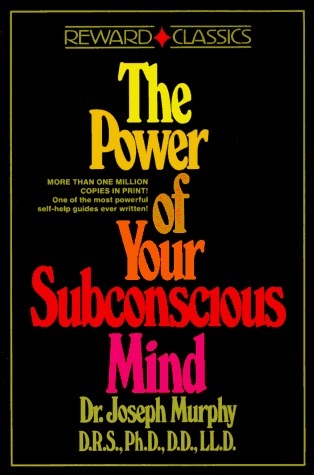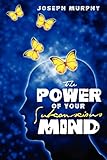Using Affirmations to reprogram your own mind

Can Affirmations Make You Lots Of Money?
Many positive thinking and self-help book recommend affirmations as a way to get what you want. Unfortunately, there is a disagreement in many of these books on how effective are affirmations and how they actually work.
The way affirmations are used, is that if you want something, like a lot of money, then you keeping on repeating to yourself, something like, “I want to be a millionaire,” or “I am a millionaire.”
Some books disagree about the wordings, as some say that if you say, “I want to be a millionaire”, then you are acknowledging the fact that you are not millionaire, and so this is a negative thought. But other books point out, that if you say, “I am a millionaire”, and you haven’t got any money, then you would be telling a lie. This means, you would be even more aware of your poverty, and this also creating negative feelings about your situation. So what would be the correct way to use affirmations?
There is no one correct way to use affirmations, as it depends a lot on the type of person you are and how these affirmations affect you. So to discover how efficient any affirmation is, we have to be aware of how we are feeling, when we use an affirmation. For instance, if we use an affirmation like, “I am a millionaire”, and it makes us feel depressed or angry, then we know that this affirmation is not helpful to us. We then would need to reword the affirmation in ways that would be acceptable to us, emotionally. This means, we can experiment with the wording to find a feeling that would be better for us

How Affirmations work
Alternative wording can be, “What if I was a millionaire”, “wouldn't it be nice to be a millionaire”, “Wouldn’t it be wonderful to be a millionaire”, “I am receiving abundance from the universe”, “I am allowing myself to receive wealth and abundance”, or make up your own set of words. You can try out these different affirmations and see how you feel, and then use an affirmation when you get the less negative feelings with it.
Another trick you can try, is to use affirmations only while you are in meditation. You may find saying, “I am a millionaire”, causes negative emotions while in normal consciousness, but while meditating, you may find, the same affirmation doesn't have the same detrimental affect. It is also helpful to focus your mind on the positive emotions of having a lot of money. The reason why so many people want to be wealthy is because they believe it will make them happy. So it is helpful to focus on the happiness they think they will receive, if they were rich, as it will help to put them into a positive frame of mind.
Another disagreement within the positive thinking community is that some say, “we create our own reality”, while others say, that this going too far. The problem is with the idea that we create our own reality, is that our reality is created by the sum total of everything we think. This means that even if we spend a half-an-hour every day in meditation affirming that we are millionaires, all this work can be cancelled out, if the rest of the time we are worrying about the fact we don’t have any money. So are affirmations a waste of time? No, because even a half-an-hour of positive thought a day, will have some effect on our reality. But also, affirmations can also be used to change our beliefs about ourselves.
In the New Testament when Jesus gave a successful healing he would say to the person he healed, “it was your faith that made this possible”. Now, this concept has caused a lot of problems for a lot of people, because how do you acquire faith that you are going to be healed of a deadly illness? Or even have faith, you will get what you want or desire, like having a lot of money. To understand this, we have to understand what faith is.

Indoctrination and advertising
Many religions, cults or even political parties have no trouble in instilling faith in their followers, and the way they do it, is through repetition. It is the same trick used by advertisers as well. People like to think they are not affected by advertising but large corporations do not spend billions of dollars on advertising for the fun of it, they use it because they know it works.
To understand why religious and political indoctrination, as well advertising, works so well, we have to understand how the human mind works. Psychologists tell us, the mind is made up of two elements, the conscious and unconscious mind. If we were to liken the workings of the human minds to that of a computer, we would see that the unconscious mind works like a computer and does whatever it’s told to do, while the conscious mind is the unconscious mind’s programmer.
The way the conscious mind programs the unconscious mind, is that when people learn a new skill like driving a car, they at first drive the car consciously. Then over time, after they have repeated the same actions time and time again, the unconscious mind learns what to do and takes over. This allows the person driving a car to think of other things while the unconscious mind is driving the car. So this then is a good thing, the unconscious mind takes over any repetitive task we have to do, allowing the conscious mind to be free to think other thoughts. So, the unconscious mind is the servant of the conscious mind, but unfortunately, too many people, have allowed the servant to become the master.
The unconscious mind also picks up on any repetitive thoughts we think. So if we are to think the same thought too often, then the unconscious mind learns it and feeds it back to us. This is how we obtain habitual thinking. Unfortunately, religions, political parties and advertisers all know about this and can use our unconscious mind to program us, to believe whatever they want us to believe in.
To give an example of this, if we are told often as a child that; “The Bible is the word of God”, this is then learnt by the unconscious mind and it feeds this thought back to us whenever we think about the Bible, and as the result, we think that this is our faith. Whereas all it is, is a habitual thought learnt by our unconscious mind. The same is true in advertising. We see an advert many times on TV and the unconscious mind learns it and repeats it to us, when we go shopping. As the result we unconsciously buy goods we see advertised on TV, without being aware we have been programmed to buy these products, by TV adverts.
So if others can program our minds to believe in whatever they want, then we should be able to programme our minds to believe, whatever we want to believe in. This is done by using affirmations to create our own beliefs. If we keep on repeating an affirmation like, “I am a millionaire”, then although we might resist this idea at first, once the unconscious mind learns it, then it will start feeding it back to us, so it can become a habitual thought or a belief.

Relaxation and affirmations
This means that affirmations can be used to create the beliefs we want to have. Some positive thinking authors talk about obtaining a ‘millionaire mind’. The theory being, that if we can create a belief that we are a millionaire, through affirmations. Then we are far more likely to have a more confident and positive frame of mind when we look ways to make money. Or this new belief can change our reality.
I have focused on money in this article, because this is the main thing people seem to want. But the same principles can be applied in healing the body or finding the perfect partner for us, or even just finding happiness. So if we want better health, then we can use an affirmation like, “I have a strong, fit and healthy body”. If you do have an illness or injury, then you can affirm to yourself, “my body is able to heal, (or repair) itself”. This will strengthen your body’s immune system and help clear away any blockages to healing, you might have unwittingly created, through negative thoughts about your body.
Using affirmations for relationships is trickier, as relationships can be a lot more complicated, than just wanting more money or better health. So it is better to use meditation and while in a deep meditation, to then think about the relationship you want for yourself. If you haven’t learnt meditation or don’t want to do it, then you can get the same effect by having a long relaxing hot bath, or listening to your favourite music.
This can be tricky for some people because, even in meditation your mind can easy drift into thinking about what you don’t want, rather than what you do want. So it is important to monitor your thoughts and feelings. Every now and then, try to take stock and see if what you are thinking is what you want for yourself. If find you are thinking what you don’t want, don’t beat yourself up, but quietly switch back to more positive thoughts. At the same time try to be aware of how you are feeling, if the thoughts you are thinking are making you happy, then you are thinking positive thoughts, but if they are causing you to be upset or depressed, then you are thinking negative thought. This means you have to practise learning to control your mind, so you can keep it thinking about things wanted, rather than things not wanted.

Conscious control of our thoughts
If you can learn to monitor and keep control over your thoughts in meditation, then you will find you are likely to start to do the same in your normal consciousness. This is where the unconscious mind can be very helpful. In some positive thinking books the unconscious mind is portrayed as the enemy, and is referred to as the robot.
There is a good reason for this, because whenever we attempt to introduce a new thought pattern, we immediately get resistance from the unconscious mind, which always takes us back to our established habitual thoughts. This then makes it very difficult to start to create a new way of thinking and some people find it so hard, battling against the robot, that they give up.
But this is the same in learning any new skill, when we first try to do this, we have to battle against the habitual behaviour patterns we already have acquired. So, if we persist in monitoring our thoughts and feelings and learning to be aware when we think negative thoughts, then over time the unconscious mind will catch on. Once the unconscious mind learns what conscious mind is doing, it begins to help the conscious mind, and reminds the conscious mind to monitor it’s thoughts. This means that over time, the unconscious mind slowly changes from being a hindrance in trying to learn a new thought pattern, to being a great help in this
So affirmations are a very useful tool in not only reprogramming ourselves but also in creating our own reality
Catherine Ponder
- Catherine Ponder Home Page
Biography of Catherine Ponder, leading author of prosperity books. Includes excerpts from her books to read online.
Esther Hicks
- Home of Abraham-Hicks Law of Attraction -- It All Started Here!
The original source material for the current Law of Attraction wave that is sweeping the world, and it is the 21st century inspiration for thousands of books, essays and lectures that are responsible for the current paradigm shift in consciousness. A
© 2011 William Bond









